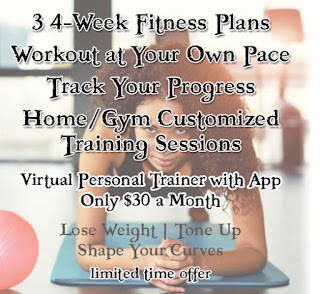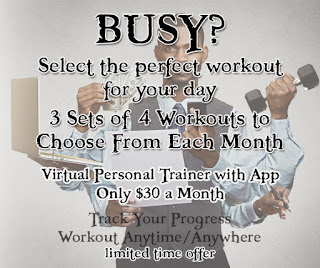Also, I have been taking supplements for years and I have a lot of personal experience to share as well as the research that I have done to guide my awareness. I train with people who take supplements. We talk about what works and I get results and have seen others get results as well.
This article is not going to be the long, drawn out version of why you should take what and what the research says. This article is about what you should know about why people take supplements and what gets results. (It is a bit lengthy, though. But you will appreciate why)

Ok, So BOOM!
You are starting a training plan, or you have been training for some time, and you notice that a lot of people are taking something to enhance their training experience. You may be feeling some sort of way about how the training effect is working on you, and you want to better understand what you can do to maximize your results.
You don't need a salesman, you just want to better understand what's going on with your body and how to help yourself get the results you are after. This article is for YOU…

Here's the thing: you are starting to push yourself beyond what your body normally does in the course of a day/week/month. Think about it like this: if you were starting to use your station wagon to drag race, you would need to enhance the mechanisms that allow you to race, win, and not destroy your vehicle - that's why we take supplements. Your basic diet is important, and because you are doing more than your basic diet is designed to handle, you may want to consider utilizing some specific nutritional support to give your body what it needs to properly adapt to the new requirements you are asking of it.
There are 6 basic supplements that will help your body adapt and recover from the additional stress of a training plan: Creatine, Glutamine, Arginine, Beta Alanine, Branch Chain Amino Acids, and a Protein Powder. We're going to talk about them and then we are going to talk about everybody's favorite mystery - Pre-Workout.
Creatine
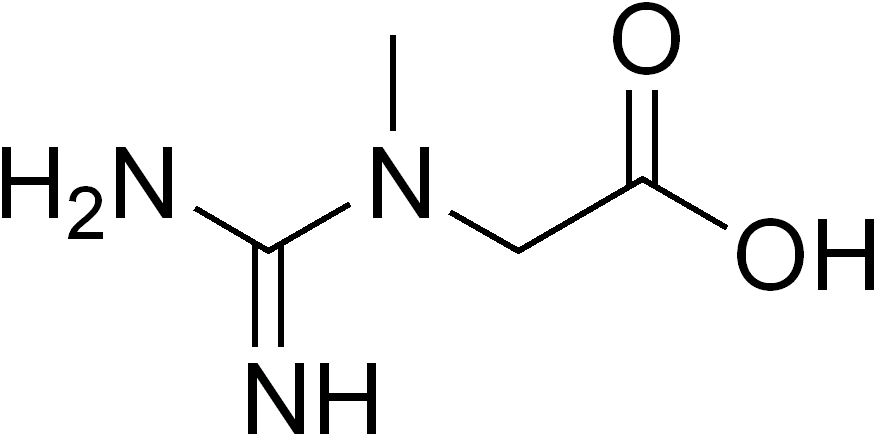
Creatine is essential to helping your body produce and store ATP which is the basic chemical in the muscles that allows for movement. As you start exercising more regularly, having more creatine in your system helps your body sustain and replace ATP in the body so you can build the stronger muscles to meet the requirements you are demanding of your body.
Creatine also helps you gain muscle in the following ways:
Boosted workload: Enables more total work or volume in a single training session, which is a key factor in long-term muscle growth.
Improved cell signaling: Can increase satellite cell signaling, which aids muscle repair and new muscle growth.
Raised anabolic hormones: Studies note a rise in hormones, such as IGF-1, after taking creatine.
Increased cell hydration: Lifts water content within your muscle cells, which causes a cell volumization effect that may play a role in muscle growth.
Reduced protein breakdown: May increase total muscle mass by reducing muscle breakdown.
Lower myostatin levels: Elevated levels of the protein myostatin can slow or totally inhibit new muscle growth. Supplementing with creatine can reduce these levels, increasing growth potential.
Creatine supplements also increase phosphocreatine stores in your brain, which may improve brain health and prevent neurological disease.
Pretty damn important.
Glutamine

Glutamine is the most common amino acid found in your muscles—over 61% of skeletal muscle is Glutamine. Glutamine consists of 19% nitrogen, making it the primary transporter of nitrogen into your muscle cells.
During intense training, Glutamine levels are greatly depleted in your body, which decreases strength, stamina and recovery. It could take up to 6 days for Glutamine levels to return to normal—and Glutamine plays a key role in protein synthesis. Studies have shown that L-Glutamine supplementation can minimize breakdown of muscle and improve protein metabolism.
Glutamine is a carbon and nitrogen donor and helps restore glycogen which restores energy. Glutamine is the most important component of muscle protein, and helps repair and build muscle.
Many protein supplements already have some L-Glutamine mixed into it, so read the labels to know for sure. Best times to take L-Glutamine powder is in the morning, after a workout, and at night before bed time.
Again; this is the kind of stuff you want to have in your body.

Glutamine is the most common amino acid found in your muscles—over 61% of skeletal muscle is Glutamine. Glutamine consists of 19% nitrogen, making it the primary transporter of nitrogen into your muscle cells.
During intense training, Glutamine levels are greatly depleted in your body, which decreases strength, stamina and recovery. It could take up to 6 days for Glutamine levels to return to normal—and Glutamine plays a key role in protein synthesis. Studies have shown that L-Glutamine supplementation can minimize breakdown of muscle and improve protein metabolism.
Glutamine is a carbon and nitrogen donor and helps restore glycogen which restores energy. Glutamine is the most important component of muscle protein, and helps repair and build muscle.
Many protein supplements already have some L-Glutamine mixed into it, so read the labels to know for sure. Best times to take L-Glutamine powder is in the morning, after a workout, and at night before bed time.
Again; this is the kind of stuff you want to have in your body.
Arginine
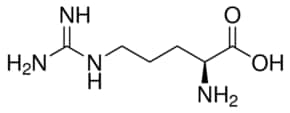
L-arginine is an amino acid that helps the body make proteins. It can be obtained naturally in the diet and is also found in dietary supplement form. Foods rich in L-arginine include plant and animal proteins, such as dairy products, meat, poultry, fish, and nuts.
L-arginine also helps rid the body of ammonia (a waste product) and stimulates the release of insulin. In addition, your body uses arginine to make nitric oxide (a compound that relaxes the blood vessels). Although some studies suggest that L-arginine may benefit certain health conditions, other research shows that L-arginine may have harmful effects on some individuals.
Some people use L-arginine to boost the immune system, improve athletic performance, shorten recovery time after surgery, and promote weight loss. L-arginine is also used for bodybuilding.
Seriously… If you are going hard on the boulevard, you are going to want to supplement with this

L-arginine is an amino acid that helps the body make proteins. It can be obtained naturally in the diet and is also found in dietary supplement form. Foods rich in L-arginine include plant and animal proteins, such as dairy products, meat, poultry, fish, and nuts.
L-arginine also helps rid the body of ammonia (a waste product) and stimulates the release of insulin. In addition, your body uses arginine to make nitric oxide (a compound that relaxes the blood vessels). Although some studies suggest that L-arginine may benefit certain health conditions, other research shows that L-arginine may have harmful effects on some individuals.
Some people use L-arginine to boost the immune system, improve athletic performance, shorten recovery time after surgery, and promote weight loss. L-arginine is also used for bodybuilding.
L-arginine may interact with certain medications, such as blood pressure medication, diabetes medication, or drugs used to treat erectile dysfunction. If you have diabetes or heart disease, avoid taking L-arginine.
Beta Alanine

Beta-alanine (β-Alanine) is an amino acid naturally found in muscles and the brain. Together with histidine, it forms carnosine, which helps reduce acid build-up during exercise. Despite mixed evidence of success, it is sold as a performance-enhancing supplement under names like Carnosyn and its slow release version, SR CarnoSyn.
Beta-alanine is most effective during anaerobic exercise (intense and exhaustive exercise that causes lactic acid to accumulate in the muscles), such as high-intensity interval training or sprinting. Most notably, it delays fatigue during repeated bouts of intense exercise with short recovery periods.
Women and vegetarians have lower amounts of muscle carnosine than men and meat-eaters, respectively. Furthermore, body carnosine naturally decreases with age. These groups may particularly benefit from beta-alanine.
Do you see how this could make a difference in the results you are getting?
Branch Chain Amino Acids (BCAA)

The branched-chain amino acids (BCAAs) are a group of three essential amino acids: leucine, isoleucine and valine. They are essential, meaning they can’t be produced by your body and must be obtained from food. BCAA supplements have been shown to build muscle, decrease muscle fatigue and alleviate muscle soreness. They have also successfully been used in a hospital setting to prevent or slow muscle loss and to improve symptoms of liver disease.
While BCAA supplementation may be useful for gaining skeletal muscle, BCAAs are especially helpful for maintaining mass while on a calorie-deficit diet.
Branched-chain amino acids (which are the essential amino acids valine, isoleucine, and leucine) stimulate muscle protein synthesis, potentially more than a normal protein on its own. Protein synthesis is the metabolic process when your body makes new muscle protein, also known as gains.
Amino acid supplementation could also help you get a more intense workout. Branched-chain amino acids compete with the amino acid tryptophan for entry into the brain, where tryptophan can be converted to the neurotransmitter serotonin.
During exercise, serotonin levels rise and can make you feel more fatigued, meaning you won't be able to push as hard.
BCAA supplementation reduces the amount of tryptophan that gets through the blood-brain barrier, and therefore reduces the amount of serotonin produced. This might allow you to work harder, longer, and get more gains.
Kinda important, right?
Protein Powder
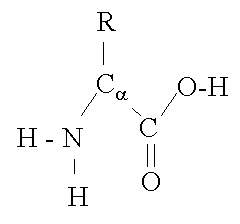
Protein powders come in various forms. The three common ones are whey, soy, and casein protein. Whey is the most commonly used, because it’s a water-soluble milk protein. It’s also a complete protein, so it’s got all those advantages. (Complete proteins contain all nine of the amino acids necessary for human dietary needs.) People who are vegan may prefer soy protein, although its taste is sometimes considered to be more unpleasant, and it doesn’t dissolve as well in water.
Protein powders also come with widely varying price tags. For the casual athlete who doesn’t have a specific need at a certain time of their training, the cost is not that important. So if you’re going to use them, you can get pretty much the same benefit out of the less expensive, more commercially available proteins.
Best Scenarios For Taking Protein:
When you’re growing. A teenager needs more protein to fuel his workouts because his body is still growing and uses more protein in general.
When you’re starting a program. If working out is new to you and you’re trying to build muscle, you’ll require more protein than you normally would.
When you’re amping up your workouts. If you normally work out for half an hour a few times a week, but now you’ve decide to train for a half-marathon, your body will need more protein.
When you’re recovering from an injury. Athletes with sports injuries frequently need more protein to help them heal.
If you’re going vegan. People who pursue a vegan or vegetarian lifestyle eliminate a number of common protein sources from their diet, including meat, chicken, and fish, and sometimes dairy and eggs as well.
Pre-Workouts

There are a lot of pre-workouts on the market and a lot of them are garbage! Avoid pre-workouts that do not show you the specific dosage of their ingredients because often they are under-dosing and over-stimulating - meaning, they substitute caffeine and beta alanine for proper doses of creatine, glutamine, and arginine. Read the labels carefully and compare before you buy. Do a little research, and look for a product that meets your specific needs. Always avoid the hype!
Conclusion
Fitness is an investment in your time and money. You will only get what you put into it. Often people are discouraged because they are not meeting the demands for the goals they want to achieve and understanding better how to provide your body the nutritional support to adapt to the changes you are making will make a big difference in achieving and maintaining your goals.

Beta-alanine (β-Alanine) is an amino acid naturally found in muscles and the brain. Together with histidine, it forms carnosine, which helps reduce acid build-up during exercise. Despite mixed evidence of success, it is sold as a performance-enhancing supplement under names like Carnosyn and its slow release version, SR CarnoSyn.
Beta-alanine is most effective during anaerobic exercise (intense and exhaustive exercise that causes lactic acid to accumulate in the muscles), such as high-intensity interval training or sprinting. Most notably, it delays fatigue during repeated bouts of intense exercise with short recovery periods.
Women and vegetarians have lower amounts of muscle carnosine than men and meat-eaters, respectively. Furthermore, body carnosine naturally decreases with age. These groups may particularly benefit from beta-alanine.
Do you see how this could make a difference in the results you are getting?
Branch Chain Amino Acids (BCAA)

The branched-chain amino acids (BCAAs) are a group of three essential amino acids: leucine, isoleucine and valine. They are essential, meaning they can’t be produced by your body and must be obtained from food. BCAA supplements have been shown to build muscle, decrease muscle fatigue and alleviate muscle soreness. They have also successfully been used in a hospital setting to prevent or slow muscle loss and to improve symptoms of liver disease.
While BCAA supplementation may be useful for gaining skeletal muscle, BCAAs are especially helpful for maintaining mass while on a calorie-deficit diet.
Branched-chain amino acids (which are the essential amino acids valine, isoleucine, and leucine) stimulate muscle protein synthesis, potentially more than a normal protein on its own. Protein synthesis is the metabolic process when your body makes new muscle protein, also known as gains.
Amino acid supplementation could also help you get a more intense workout. Branched-chain amino acids compete with the amino acid tryptophan for entry into the brain, where tryptophan can be converted to the neurotransmitter serotonin.
During exercise, serotonin levels rise and can make you feel more fatigued, meaning you won't be able to push as hard.
BCAA supplementation reduces the amount of tryptophan that gets through the blood-brain barrier, and therefore reduces the amount of serotonin produced. This might allow you to work harder, longer, and get more gains.
Kinda important, right?
Protein Powder

Protein powders come in various forms. The three common ones are whey, soy, and casein protein. Whey is the most commonly used, because it’s a water-soluble milk protein. It’s also a complete protein, so it’s got all those advantages. (Complete proteins contain all nine of the amino acids necessary for human dietary needs.) People who are vegan may prefer soy protein, although its taste is sometimes considered to be more unpleasant, and it doesn’t dissolve as well in water.
Protein powders also come with widely varying price tags. For the casual athlete who doesn’t have a specific need at a certain time of their training, the cost is not that important. So if you’re going to use them, you can get pretty much the same benefit out of the less expensive, more commercially available proteins.
Best Scenarios For Taking Protein:
When you’re growing. A teenager needs more protein to fuel his workouts because his body is still growing and uses more protein in general.
When you’re starting a program. If working out is new to you and you’re trying to build muscle, you’ll require more protein than you normally would.
When you’re amping up your workouts. If you normally work out for half an hour a few times a week, but now you’ve decide to train for a half-marathon, your body will need more protein.
When you’re recovering from an injury. Athletes with sports injuries frequently need more protein to help them heal.
If you’re going vegan. People who pursue a vegan or vegetarian lifestyle eliminate a number of common protein sources from their diet, including meat, chicken, and fish, and sometimes dairy and eggs as well.
Pre-Workouts

There are a lot of pre-workouts on the market and a lot of them are garbage! Avoid pre-workouts that do not show you the specific dosage of their ingredients because often they are under-dosing and over-stimulating - meaning, they substitute caffeine and beta alanine for proper doses of creatine, glutamine, and arginine. Read the labels carefully and compare before you buy. Do a little research, and look for a product that meets your specific needs. Always avoid the hype!
Conclusion
Fitness is an investment in your time and money. You will only get what you put into it. Often people are discouraged because they are not meeting the demands for the goals they want to achieve and understanding better how to provide your body the nutritional support to adapt to the changes you are making will make a big difference in achieving and maintaining your goals.
Prepare for your success with intention. You can do it!
Looking For A Fitness Plan To Help You Reach Your Goals?
